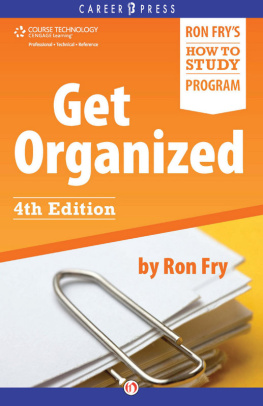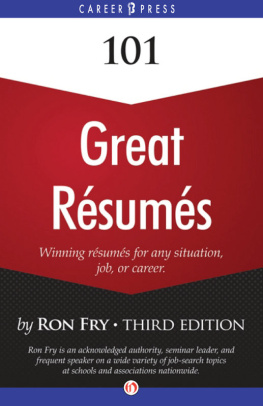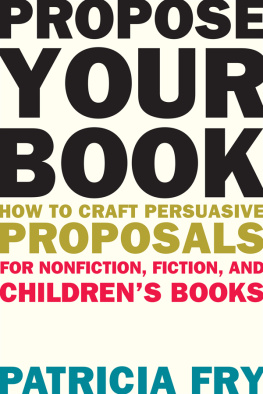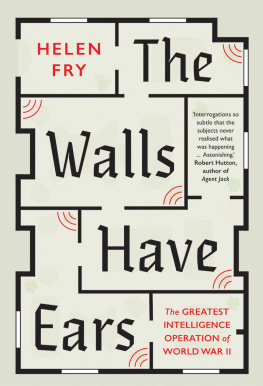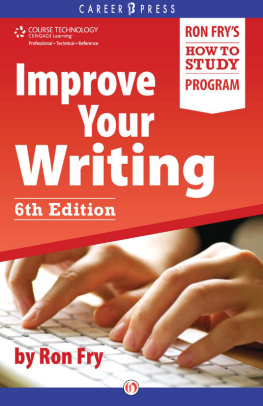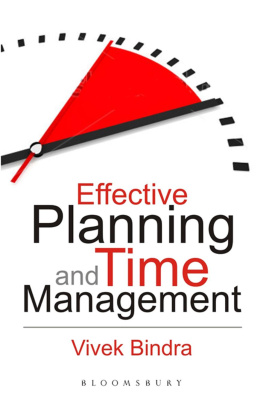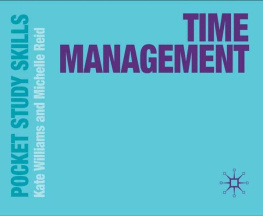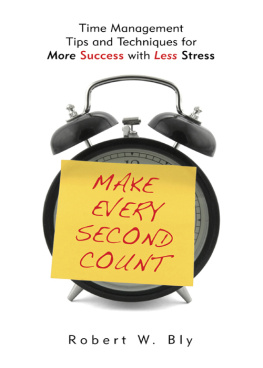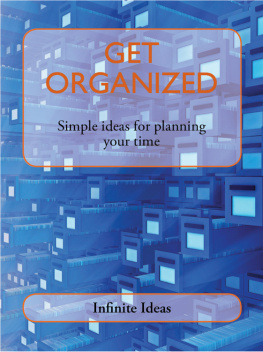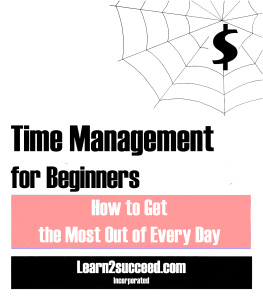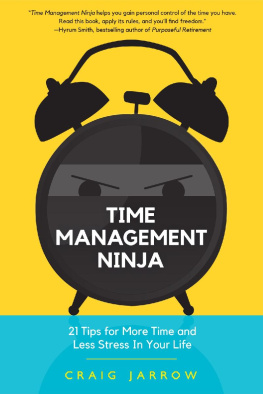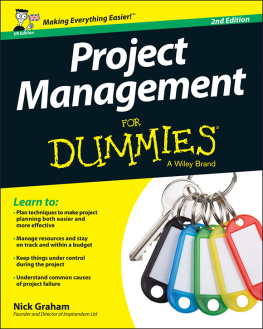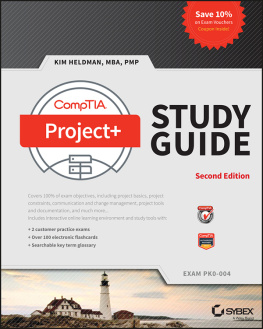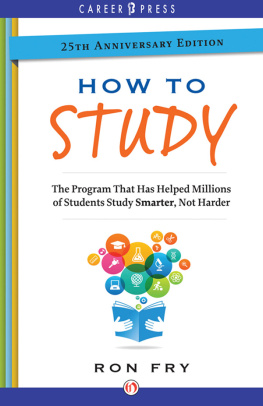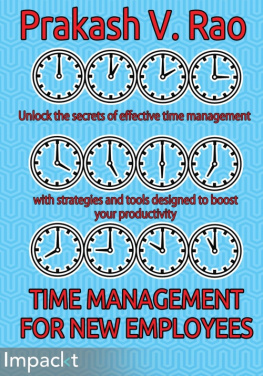Fry - Get Organized
Here you can read online Fry - Get Organized full text of the book (entire story) in english for free. Download pdf and epub, get meaning, cover and reviews about this ebook. year: 2012, publisher: Career Press, genre: Home and family. Description of the work, (preface) as well as reviews are available. Best literature library LitArk.com created for fans of good reading and offers a wide selection of genres:
Romance novel
Science fiction
Adventure
Detective
Science
History
Home and family
Prose
Art
Politics
Computer
Non-fiction
Religion
Business
Children
Humor
Choose a favorite category and find really read worthwhile books. Enjoy immersion in the world of imagination, feel the emotions of the characters or learn something new for yourself, make an fascinating discovery.
- Book:Get Organized
- Author:
- Publisher:Career Press
- Genre:
- Year:2012
- Rating:4 / 5
- Favourites:Add to favourites
- Your mark:
- 80
- 1
- 2
- 3
- 4
- 5
Get Organized: summary, description and annotation
We offer to read an annotation, description, summary or preface (depends on what the author of the book "Get Organized" wrote himself). If you haven't found the necessary information about the book — write in the comments, we will try to find it.
Get Organized shows you how to create your ideal study environment by using simple time-management tips to develop to-do lists, daily schedules, monthly calendars, and project boards. Now updated to include electronic and online planning tools, this new edition also provides strategies that help you prioritize, avoid time trap activities, and anticipate opportunities. Youll learn how to make your study time efficient and effective.
Fry: author's other books
Who wrote Get Organized? Find out the surname, the name of the author of the book and a list of all author's works by series.
Get Organized — read online for free the complete book (whole text) full work
Below is the text of the book, divided by pages. System saving the place of the last page read, allows you to conveniently read the book "Get Organized" online for free, without having to search again every time where you left off. Put a bookmark, and you can go to the page where you finished reading at any time.
Font size:
Interval:
Bookmark:

FOURTH EDITION
Ron Fry

STARTING AT THE BEGINNING
This marks another major milestone in the 20-year-long evolution of my How to Study Programthe reissuance of new editions of the key volumes: How to Study itself, now in a seventh edition; sixth editions of Improve Your Memory, Improve Your Reading, Improve Your Writing, and Ace Any Test; and a fourth edition of the book youre currently reading, Get Organized.
I am truly proud, though somewhat amazed, that these books are now moving into their third decade. While all authors want to believe their books will last forever, most wind up in the remainder bin far sooner than we would ever like (or admit).
A number of you are students, not just the high school students I always thought were my readers, but also college students and, much to my delight, even middle school students (which says something quite positive about your ambition and what I anticipate will be your eventual success).
Many of you reading this are adults. Some of you are returning to school. And some of you are long out of school but have figured out that if you can learn now the study skills your teachers never taught you (or you never took the time to learn), you will do better in your careersespecially if you know how to meet pressing deadlines or organize the key points of a presentation.
All too many of you are parents with the same lament: How do I get Johnny to do better in school? If his life is as organized as his room, I fear for all of us!
You should be particularly comfortable with both the language and format of this bookits relatively short sentences and paragraphs, occasionally humorous (hopefully) headings and subheadings, a reasonable but certainly not outrageous vocabulary. I wrote it with you in mind!
Learning now how to organize your studying and your life is absolutely key to your future success. You are trying to learn how to study at precisely the right time. Sixth, seventh, and eighth gradesbefore that sometimes cosmic leap to high schoolare without a doubt the period in which these study skills should be mastered. If youre serious enough about studying to be reading this book, I doubt youll have trouble with the concepts or the language.
Having pretty much gone right from high school to college, learning how to organize your life and studies is not just a nice ideaits the only thing that will enable you to survive. Trust me. You havent even contemplated how busy life can be until you show up at old Klutzburg U. and get your first class scheduleand volunteer schedule and athletics scheduleand work schedule.
Your childs school is probably doing little, if anything, to teach him or her how to study. Which means he or she is not learning how to learn. And that means he or she is not learning how to succeed.
Should the schools be accomplishing that? Absolutely. After all, we spend more than $300 billion on elementary and secondary education in this country. We ought to be getting more for that money than a diploma, some football cheers, and a discouraging entry-level job market.
There are probably even more dedicated parents out there than dedicated students, since the first phone call at any of my radio or TV appearances comes from a sincere and worried parent asking, What can I do to help my kid do better in school? Okay, here they are, the rules for parents of students of any age:
1. Set up a homework area. Free of distraction, well lit, with all necessary supplies handy.
2. Set up a homework routine. When and where it gets done. Studies have clearly shown that students who establish a regular routine are better organized and, as a result, more successful.
3. Set homework priorities. Actually, just make the point that homework is the prioritybefore a date, before TV, before going out to play, whatever.
4. Make reading a habitfor them, certainly, but also for yourself. Kids will inevitably do what you do, not what you say (even if you say not to do what you do).
5. Turn off the TV. Or at the very least, severely limit when and how much TV-watching is appropriate. This may be the toughest suggestion to enforce. I know. I was once the parent of a teenager too.
6. Talk to the teachers. Find out what your kids are supposed to be learning. If you dont know the books theyre supposed to be reading, whats expected of them in class, and how much homework they should be scheduling, you cant really give them the help they need.
7. Encourage and motivate, but dont nag them to do their homework. It doesnt work. The more you insist, the quicker they will tune you out.
8. Supervise their work, but dont fall into the trap of doing their homework. Proofreading a paper, for example, is a positive way to help your child in school. But if you simply put in corrections without your child learning from her mistakes, youre not helping her at allexcept in the belief that she is not responsible for her own work.
9. Praise them when they succeed, but dont overpraise them for mediocre work. Kids know when youre being insincere and, again, will quickly tune you out.
10. Convince them of reality. (This is for older students.) Okay, Ill admit its almost as much of a stretch as turning off the TV, but learning and believing that the real world will not care about their grades, but will measure them by what they know and what they can do, is a lesson that will save many tears (probably yours). Its probably never too early to (carefully) let your boy or girl genius get the message that life is not fair.
11. If you can afford it, get your kid(s) a computer and all the software they can handle. There really is no avoiding it: Your kids, what ever their ages, absolutely must be computer-savvy in order to survive in and after school.
12. Turn off the TV already!
13. Get wired. The Internet is the greatest invention of our age and an unbelievable tool for students of any age. It is impossible for a college student to succeed without the ability to surf the Internet, and nearly impossible for younger students as well. Theyve got to be connected.
14. But turn off IM (Instant Messaging) while doing homework. They will attempt to convince you that they can write their paper and do geometry and IM their friends at the same time. Parents who believe this have also been persuaded its a fine idea to do homework in front of the TV.
The results of every study done in the last two decades about what affects a childs success in school clearly demonstrate that only one factor overwhelmingly affects it, every time: parental involvementnot the size of the school, the money spent per pupil, the number of language labs, how many of the students go on to college, how many great (or lousy) teachers there are. None is as significant as the effect you can have.
So please, take the time to read this book and find out what your kids
Next pageFont size:
Interval:
Bookmark:
Similar books «Get Organized»
Look at similar books to Get Organized. We have selected literature similar in name and meaning in the hope of providing readers with more options to find new, interesting, not yet read works.
Discussion, reviews of the book Get Organized and just readers' own opinions. Leave your comments, write what you think about the work, its meaning or the main characters. Specify what exactly you liked and what you didn't like, and why you think so.

